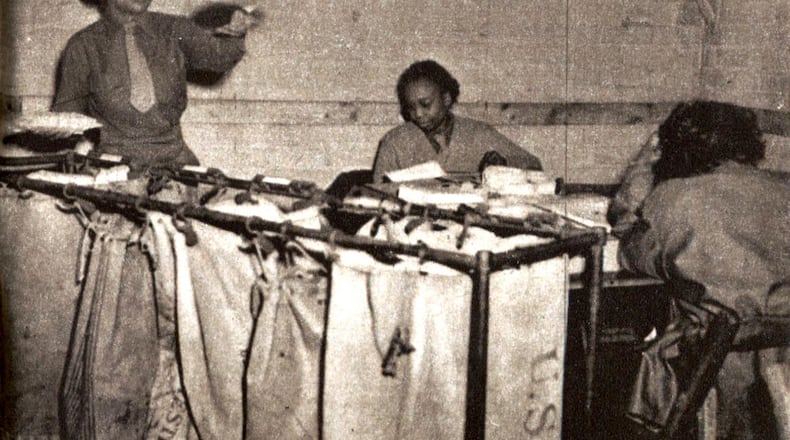Credit: Department of Defense
Credit: Department of Defense
Additionally, we cannot overlook the legendary accomplishments of minority units, such as the Tuskegee Airmen and the 6888th Central Postal Directory Battalion, whose service in World War II left an indelible mark on military history. The Tuskegee Airmen, the first African-American aviators in the U.S. Army Air Corps, overcame racial prejudice and proved their worth in the skies, contributing to the Allied victory in Europe. The 6888th, an all-Black female unit, served with distinction by ensuring that vital mail reached soldiers, a task of great importance that kept morale high in the European theater. Their contributions are emblematic of the resilience and dedication of people of color in the face of adversity.
As we celebrate Women’s History Month, it’s important to reflect on the significant contributions women made to the World War II effort. During the war, each branch of the military had Women’s Auxiliary Branches, such as the Women Airforce Service Pilots (WASPs), who delivered over 12,650 aircraft to various U.S. installations, logging more than 60 million miles.
Credit: ddn archive
Credit: ddn archive
Lieutenant Colonel Charity Adams Early, the highest-ranking African-American woman in the Army at the end of WWII, led the 6888th Central Postal Directory Battalion. This battalion, composed of African-American women, was deployed to England in early 1945 to clear a massive backlog of mail for U.S. soldiers. Despite being given six months, the unit completed the task in just three months.
Another remarkable figure in military history is Mary Edwards Walker, the only female Medal of Honor recipient. As a surgeon during the Civil War, she defied conventional gender roles, offering her expertise in a time of great need. Her legacy serves as a reminder of the often-overlooked roles of women, especially women of color, in shaping the history of our military.
During WWII, American women played a crucial role as codebreakers, working at places like the Pentagon and the Navy’s Cryptanalytic Unit. They decrypted enemy messages, contributing to significant victories such as the Battle of Midway. Their work remained largely classified for years but was pivotal in Allied success.
Additionally, women contributed on the home front, working in factories, volunteering for the Red Cross, and supporting U.S. troops through organizations like the USO, leaving an indelible mark on history.
Those of us who have served or are currently serving in the U.S Armed Forces have taken an oath of office. The oath of office is centered on defending the Constitution and the values it represents, not any specific political party, group, or individual. It’s a commitment to the broader principles of freedom, justice, and the protection of all citizens, regardless of their background or political affiliation. That oath is about defending the country and its foundational ideals, and it’s a reminder that the military’s role is to serve the nation as a whole, not a specific faction or identity group.
As we continue to honor the brave men and women who have served our country, it is essential to remember and celebrate the diverse contributions made by minorities in shaping our military history. Their sacrifices, often made under the most difficult of circumstances, have laid the groundwork for a more inclusive and equitable armed forces today.
We must continue to shine a light on these stories and ensure that future generations understand and appreciate the role of all Americans in securing our freedoms.
Michael J. Bamber, Lieutenant Colonel, U.S. Army (Ret.), lives in Dayton and served an honorable 20-year career in the U.S. Army and Army Reserves, holding various leadership positions and contributing to the defense community, before retiring in 2017 and continuing his service through education, outreach, and volunteer work.
About the Author


